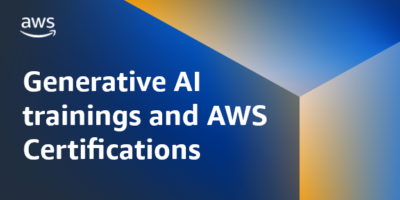A Comprehensive Guide to AWS Careers
Amazon Web Services (AWS) offers extensive career opportunities. As cloud computing gains traction, expertise in AWS is in high demand. There are diverse roles within AWS careers, each with unique responsibilities and required skill sets. This guide explores various AWS roles, essential certifications, necessary skills, and detailed steps to launch a career in AWS.
Understanding AWS Roles

AWS roles are varied and cater to different career paths. Some prominent roles include:
AWS Solutions Architect
Solutions Architects design solutions using AWS services. They bridge the gap between complex business problems and AWS capabilities. They work closely with developers and other architects to ensure robust solutions are implemented. Key responsibilities include selecting appropriate AWS services, estimating costs, and identifying cost-control mechanisms. Strong understanding of AWS infrastructure and concepts is crucial.
AWS Developer
AWS Developers are responsible for the development and maintenance of applications on AWS. They write code to build solutions that integrate with AWS services. Knowledge of programming languages like Python, Java, and JavaScript is essential. They must understand AWS tools and services, such as Lambda, EC2, RDS, and S3.
AWS SysOps Administrator
SysOps Administrators manage and operate AWS environments. Their duties include deploying, managing, and operating scalable systems. Monitoring and maintaining performance, ensuring security, and managing backups are vital aspects. Proficiency in AWS management console and CLI is important.
AWS DevOps Engineer
DevOps Engineers automate and streamline development and deployment processes. They use tools like Jenkins, Docker, and Kubernetes along with AWS services. Their role ensures continuous integration and continuous delivery (CI/CD). They must possess both development and system administration skills.
Cloud Support Engineer
Cloud Support Engineers provide technical support for AWS customers. They troubleshoot issues related to AWS services. They need strong problem-solving skills and an in-depth understanding of cloud concepts. Customer service skills are equally important to handle client interactions efficiently.
Essential AWS Certifications
Obtaining AWS certifications can significantly boost career prospects. Some key certifications include:
- AWS Certified Solutions Architect – Associate: Validates ability to design and deploy scalable systems on AWS.
- AWS Certified Developer – Associate: Focuses on developing and maintaining AWS-based applications.
- AWS Certified SysOps Administrator – Associate: Demonstrates skills to manage and deploy AWS operations.
- AWS Certified DevOps Engineer – Professional: Affirms expertise in provisioning, operating, and managing distributed application systems.
- AWS Certified Security – Specialty: Confirms knowledge of securing AWS systems effectively.
Skills Required for AWS Careers
A strong foundation in cloud concepts is essential. Understanding of virtualization, networking, and storage systems is crucial. Practical skills in AWS services and tools are important. Key skills include:
Proficiency in Programming Languages
Knowledge of languages such as Python, Java, and JavaScript is vital. Developers need these for building applications on AWS.
Understanding of AWS Services
In-depth knowledge of core AWS services such as EC2, S3, RDS, and VPC is crucial. Each role may require additional specific expertise in services relevant to the position.
Familiarity with DevOps Tools
Proficiency in tools like Jenkins, Docker, and Kubernetes is necessary for DevOps Engineers. Automating workflows and managing CI/CD pipelines require these skills.
Networking and Security
Strong understanding of networking concepts and security best practices is important. AWS roles often involve designing secure and robust network structures.
Database Management
Knowledge of database services like RDS and DynamoDB is essential. Many AWS roles involve setting up, managing, and optimizing databases.
Steps to Start an AWS Career
Starting a career in AWS involves several strategic steps. Here’s a path to follow:
Learn Basic Cloud Computing Concepts
Understanding cloud computing fundamentals is the first step. Free resources are available online to grasp these basics. Familiarize yourself with virtualization, storage, and networking in the cloud context.
Get Hands-On Experience
Practical experience is invaluable. Use AWS Free Tier to practice and build projects. Experiment with different AWS services and tools. Create solutions and troubleshoot issues to enhance your learning.
Earn AWS Certifications
Certifications validate your skills and knowledge. Start with fundamentals like AWS Certified Cloud Practitioner. Progress to role-specific certifications as you gain expertise.
Build a Portfolio
Showcase your projects and solutions. Create a portfolio highlighting your work with AWS. Document your learning journey and demonstrate your practical skills.
Apply for Internships or Entry-Level Positions
Gain industry experience through internships or junior roles. Look for opportunities that align with your skills and interests. Practical work experience is crucial for career advancement.
AWS Career Growth and Opportunities
AWS careers offer ample growth opportunities. As cloud computing evolves, so do the career prospects. Continuous learning and staying updated with new AWS services is important. There are various specializations and advanced roles to explore as you progress in your career.
Specializations in AWS
Different specializations offer unique career paths:
- Big Data: Specialize in AWS data services like Redshift, EMR, and Kinesis.
- Machine Learning: Focus on SageMaker and other AWS Machine Learning services.
- Security: Expertise in AWS security services like IAM, KMS, and WAF.
- Networking: Advanced knowledge of VPC, Route 53, and other networking services.
Advanced Roles
With experience, you can move into senior and advanced roles:
- Senior Solutions Architect: Offers strategic guidance and leads complex projects.
- Principal Cloud Engineer: Drives innovation and cloud adoption strategies.
- Cloud Architect: Designs enterprise-level cloud architectures.
A career in AWS is a promising choice with growing relevance in the tech industry. Opportunities are vast, and continuous learning is key to success in this field.


